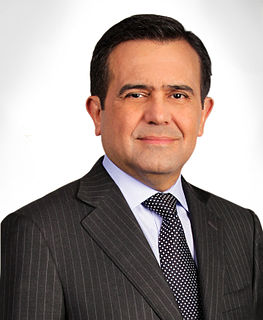A Quote by Arancha Gonzalez
What exactly is trade facilitation? In a nutshell, it is an effort to enable global trade by reducing red tape and streamline customs. In even simpler words: making it easier for companies to trade across borders.
Related Quotes
Eventually we'll use a CO2 tax offset by a reduction in taxes elsewhere alongside a cap-and-trade plan, but the degree of difficulty associated with a CO2 tax far exceeds that with a cap-and-trade plan. We're seeing it's hard to get a cap-and-trade plan and it's much easier to use as a basis for a global agreement than a CO2 tax.

































